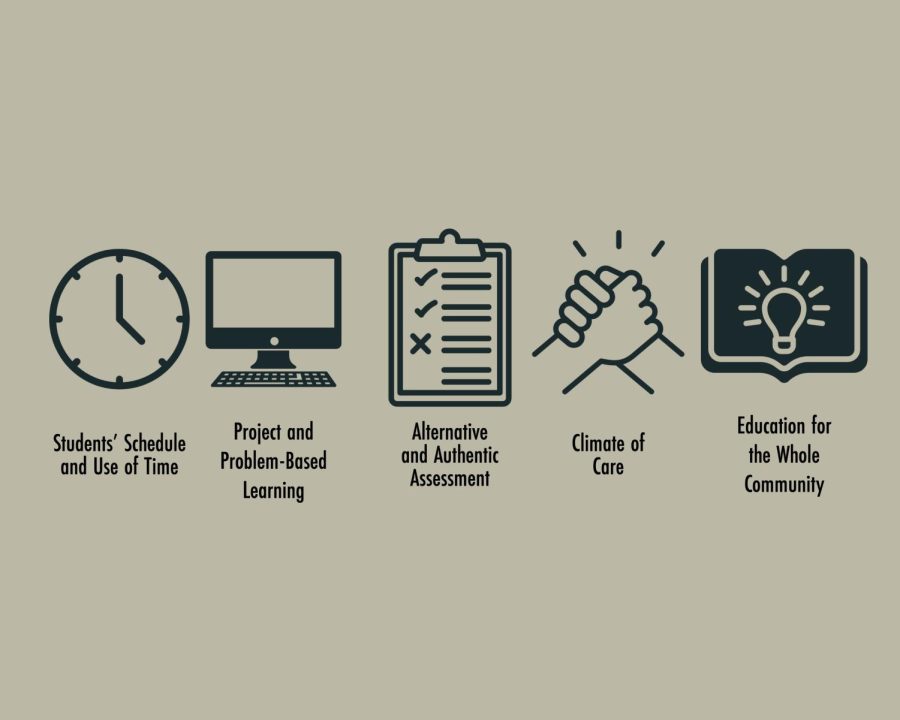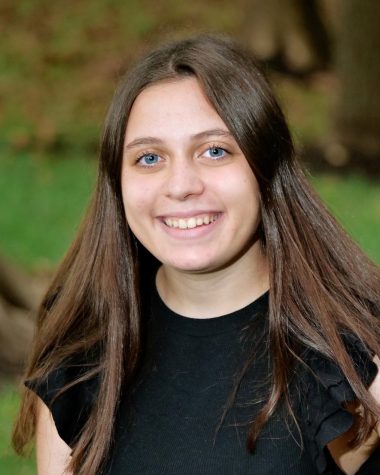No work policy extended
SPACE framework designed by Challenge Success
October 18, 2022
CESJDS’s policy to not assign homework or assessments over the Jewish holidays was extended in the 2020-2021 school year to include all long weekends and breaks, and students have begun to notice differences this year.
The high school family handbook cites Rabbi Abraham Joshua Heschel’s idea of viewing the Jewish holidays as an “island in time.” The no-homework policy encourages students to spend time with family and friends and reflect on each week, rather than focusing on school work. This guideline also accounts for the varied levels of observance within families in the JDS community, allowing each student to balance their education with the ability to freely explore and practice their religious beliefs.
As such, the guidelines outlined in the handbook concerning assignments over the Jewish holidays include: no homework (including reading) may be assigned over Jewish holidays, no long-term assignments may be due just after a Jewish holiday and no tests or quizzes may be assigned for the day after a Jewish holiday. The guidelines also highlight that no tests or projects may be given during the intermediate days of Sukkot, and only light homework is permitted during Hanukkah.
However, when High School Principal and Campus Head Dr. Lisa Vardi joined the staff last year, she adjusted this policy to include all extended breaks as well. Based on this adjustment, the above restrictions now apply to breaks such as Labor Day weekend, Thanksgiving, winter break and more.
“There’s a lot of research that has been done around creating a climate of care in schools, making sure that students have a balance between their academic load and their social-emotional care,” Vardi said. “Some of the recommendations that came out of survey data from Stanford’s Challenge Success included schools should not be assigning homework and other assignments over long breaks. It’s not good for kids. Kids need balance, and so a lot of schools across the country–high performing academic schools–have put these policies and practices in place.”
Challenge Success is a non-profit affiliated with Stanford University Graduate School of Education that works to change the student experience so that all students can find success in their education. Based on quantitative and qualitative research performed at schools across the country, Challenge Success developed a framework for school changes that many educators have begun to consider when developing their school’s policies.
The framework, which is called SPACE, is based around five key ideas: students’ schedule and use of time, project and problem-based learning, alternative and authentic assessment, climate of care and education for the whole community. One of the many recommendations highlighted in these guidelines is to eliminate assignments over break, which JDS has now done.
Although such policy changes cause teachers to shift their scheduling slightly when it comes to assignments, the majority of faculty have embraced the new policy and recognize its importance.
“There’s so much research that talks about the importance of brain breaks and actually being able to disconnect and relax,” high school English teacher Nancy Wassner said.
However, students have had a variety of experiences in regards to the implementation of this policy. Some have expressed difficulty with receiving an overwhelming amount of assignments all at once, since there are so few days in the month of October that teachers are allowed to assign work.
“We go on for long periods of time without homework, but right as those holidays end we get pummeled with homework assignments,” junior Olivia Cohen said. “I think that teachers need to organize and discuss with other teachers about what assignments those teachers are giving out. That way, we only have a couple assignments every week so we can do our best at those specific assignments and not have to divide our focus.”
Cohen also explained that several teachers have been assigning large amounts of work to do during class that are impossible to complete successfully in the allotted time, therefore forcing students to finish their assignments at home for a better grade.
Despite these difficulties, many students still do appreciate the efforts the administration has taken to create a stronger work-life balance through this policy.
“By not having homework we’re allotted more time in the day to spend time doing the things we like and spending more quality time with our families, which is something that most of us aren’t able to normally do because of the amount of work we have,” junior Alec Silberg said. “Not having an extra stress over your head provides a nice break for students and they are able to come back to school with more energy ready to be more productive in their work.”








